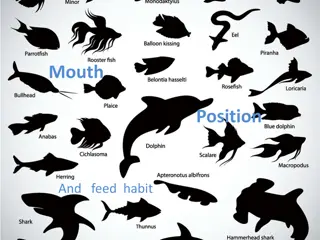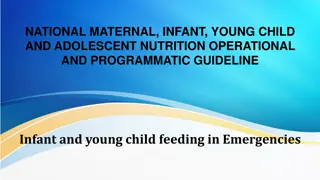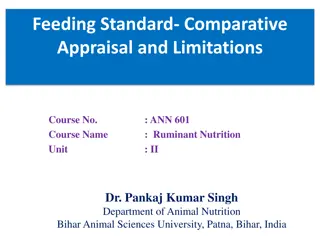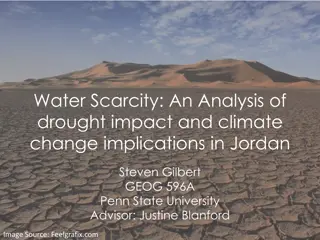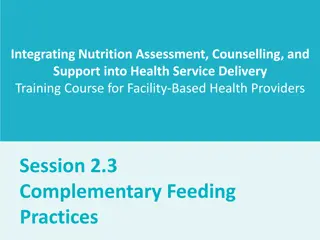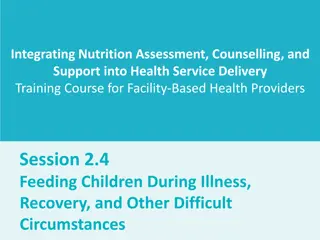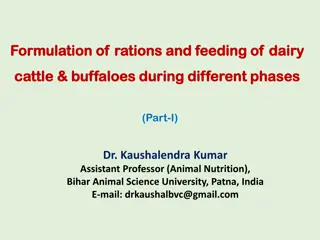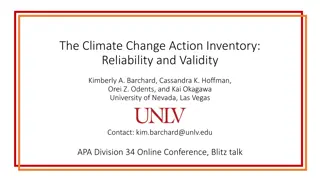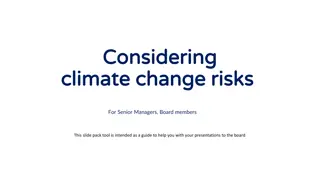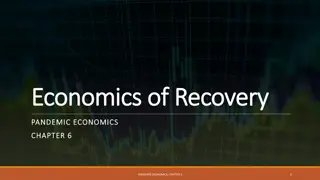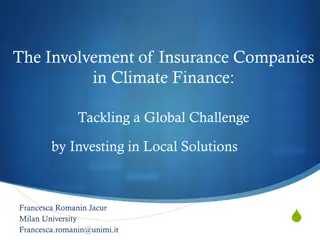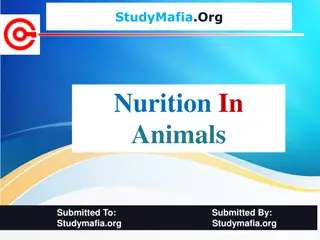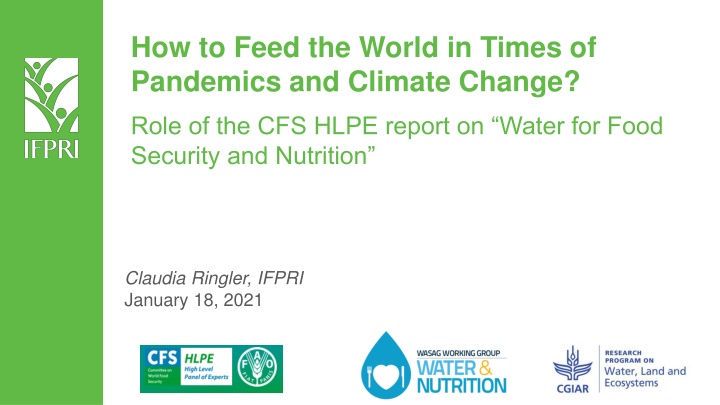
Feeding the World During Pandemics & Climate Change
Considering the intrinsic linkages between water, food security, and nutrition, the CFS HLPE report emphasizes the essentiality of sustainable water management, gender equality, and inclusive governance to combat pandemics and climate change. Key recommendations highlight the need for equal access to water, improved efficiency in water use, and increased resilience to water variability. Despite some progress, collaborative actions between water, nutrition, and climate change sectors remain limited, posing threats to food and water security amid growing pandemic risks and accelerating climate impacts for vulnerable populations.
Download Presentation

Please find below an Image/Link to download the presentation.
The content on the website is provided AS IS for your information and personal use only. It may not be sold, licensed, or shared on other websites without obtaining consent from the author. If you encounter any issues during the download, it is possible that the publisher has removed the file from their server.
You are allowed to download the files provided on this website for personal or commercial use, subject to the condition that they are used lawfully. All files are the property of their respective owners.
The content on the website is provided AS IS for your information and personal use only. It may not be sold, licensed, or shared on other websites without obtaining consent from the author.
E N D
Presentation Transcript
How to Feed the World in Times of Pandemics and Climate Change? Role of the CFS HLPE report on Water for Food Security and Nutrition Claudia Ringler, IFPRI January 18, 2021
What was new with CFS HLPE 2015: Water for Food Security and Nutrition? 1. Established, for the first time, the intrinsic linkages between water, food security and nutrition 2. Noted the essentiality of water to the progressive realization of the right to adequate food (and the linkages between the right to food and the right to water and sanitation) 3. Stressed the fundamental role of gender equality and women s empowerment in realizing water s role for food and nutrition security All of these novel foci are essential to fight pandemics & climate change
Key Recommendations of the 2015 HLPE report: relevance for CC and pandemics 1. Promote sustainable management and conservation of ecosystems for water for FSN essential to retain water functions under CC and essential to reduce zoonotic disease risk 2. Improve coherence between water and FSN related policies, strategies and plans CC directly affects water for food & also nutrition; water security: a resilience capacity against disease 3. Achieve equal access to water for all, focusing on vulnerable, women and youth the most vulnerable suffer most from pandemics and CC 4. Improve the efficiency and diversity of water use and the productivity of agricultural systems CC and pandemics require more effective use of water 5. Manage risk and increase resilience to water variability for FSN direct CC message, including social protection, food reserves and assistance, also needed to counteract pandemics 6. Develop and share knowledge, technologies, and tools related to water for FSN direct CC message; local capacities also essential in the pandemic fight 7. Foster inclusive and effective collaboration and national and local governance on water for FSN Governance essential to retain natural resources to fight CC and pandemics 8. Promote human rights as they relate to water for FSN-> local productivity improvements important when supply chains break down during pandemics; progress in human rights to water and food essential in the response to CC
Are we done yet? Key findings on the role of water for FSN have been established and reaffirmed Some advances, such as new indicators on household water security, linked with food insecurity; new science and policy advocacy groups, such as the WASAG Working Group on Water and Nutrition However, overall actions between the water and nutrition (and nutrition and CC) communities remain limited; are seen as to complex; transaction cost intensive; and training remains largely single-sector Thus, food and water security have declined and will continue to worsen, the threat of pandemics is growing, and adverse climate change impacts are accelerating with largest impacts for the poorest No serious action to address these challenges is on the horizon Credit: David Brazier/IWMI


